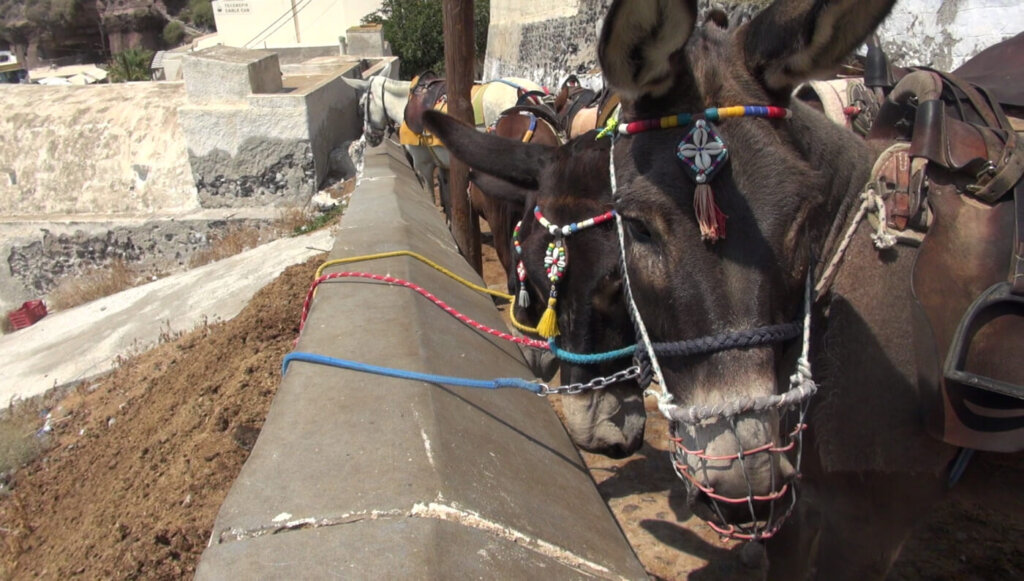Donkeys on Santorini Abused and Used as Taxis: Please Help Them!
An eyewitness report published by PETA Germany reveals the horrific conditions that approximately 100 donkeys and mules are forced to endure every day on the Greek island of Santorini. They carry heavy loads, are given practically no respite from the hot Mediterranean sun, and are even denied access to water. They also incur wounds and abrasions from ill-fitting and worn-out saddles.
Denied Water and Shade
The donkeys and mules are being used as “taxis” to transport tourists up more than 500 steps to the old town of Firá, even though a cable car has been operating nearby for decades. The animals’ owners and local authorities still hold on to the “tradition” of riding donkeys, even though their treatment apparently breaches Greek animal-welfare laws
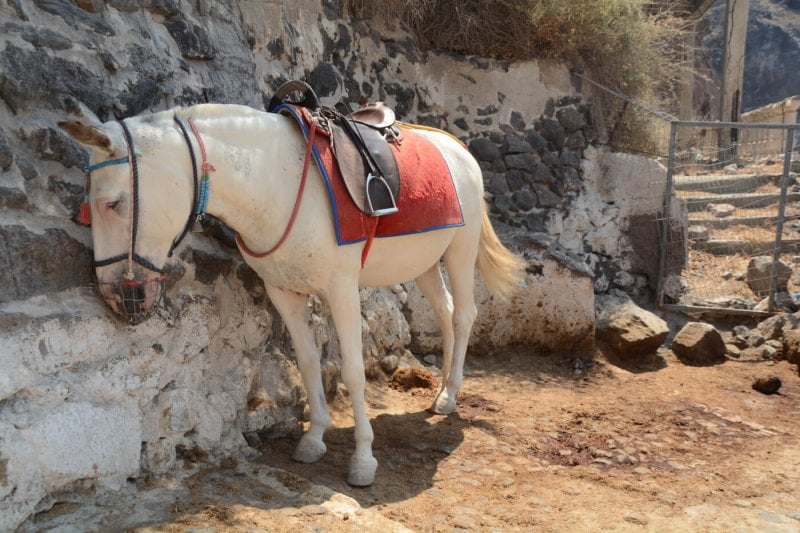
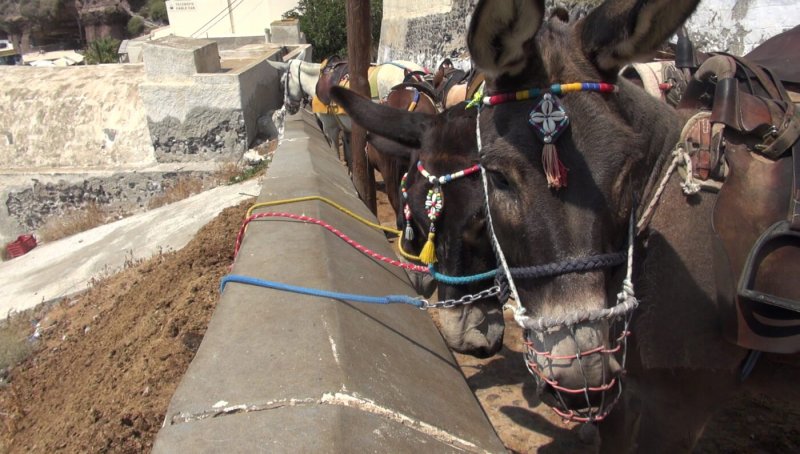
Under these laws, animals must have access to water and protection from the weather, but many of those used for rides are tied to a wall or rail for hours in the blistering summer sun with no access to water whatsoever. Some try desperately to find shade. These conditions are apparently illegal but tolerated by the authorities.
Forced to Perform Gruelling Work Seven Days a Week
The animals are often forced to make the strenuous climb up and down the steps four or five times a day. According to veterinary recommendations, donkeys shouldn’t carry more than 20 per cent of their body weight, approximately 50 kilograms. But profit-driven owners often allow heavier riders, placing a great strain on the animals’ backs and joints. This has grave consequences for the donkeys. If they become too weak to carry on with their “work”, they’re often abandoned to die.
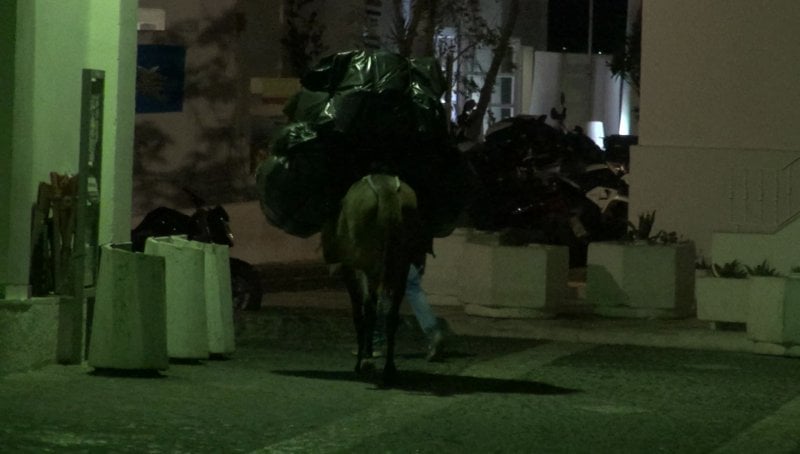
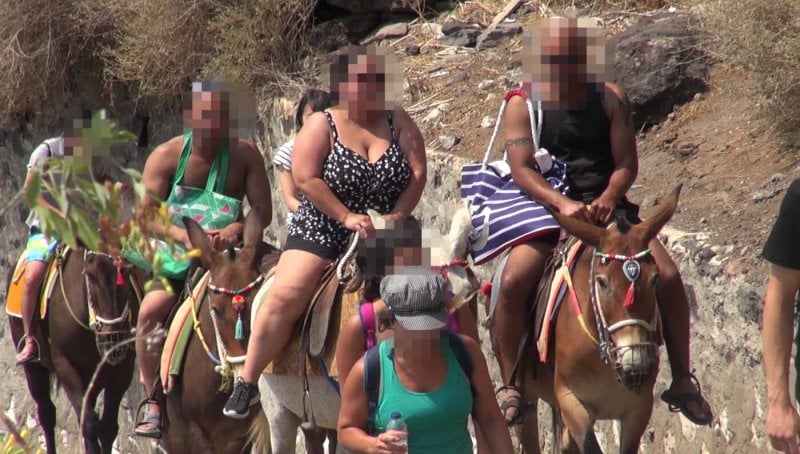
Many tourists who ride them seem not to know how to do so, and some handle them inhumanely. They have been observed digging their heels into the animals’ sides. When the animals stop on the steps, the owners often use sticks or whips to drive them on. In one instance, a driver first yanked the animal by the reins and then violently beat him with a stick.
Left With Painful Wounds
Many animals incur deep wounds and abrasions from ill-fitting saddles, particularly around the girth. Because they’re continually irritated by the saddles, the deep wounds can’t heal properly, which can lead to long-term pain. Additionally, eyewitnesses observed untreated wounds teeming with flies on some animals’ heads. Rather than being treated for their injuries, they’re forced to continue working by owners who clearly prioritise profit over animal welfare.
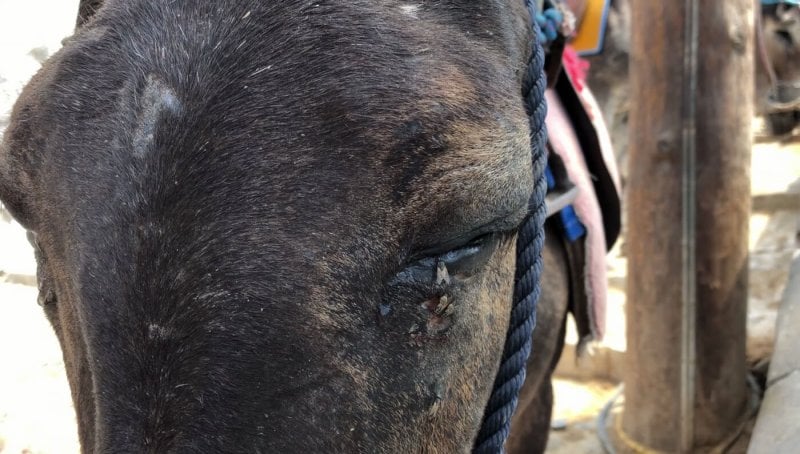
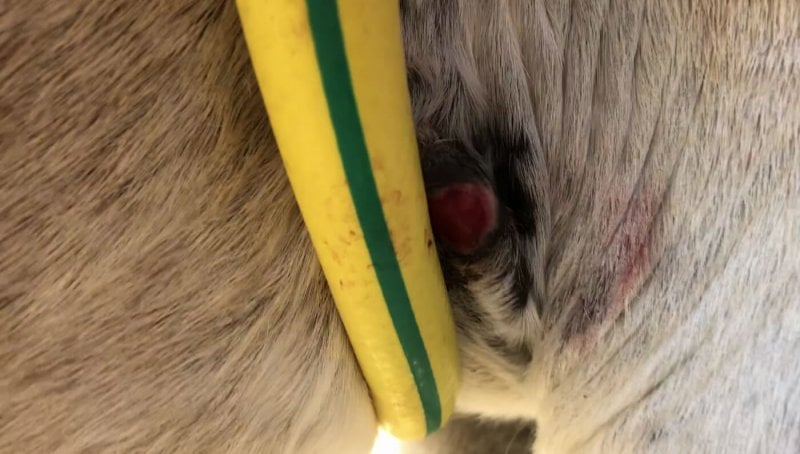
Even at night, some donkeys on Santorini get no rest: they’re forced to carry heavy bags of rubbish. Often, they seem to be overloaded – a condition that the authorities thought was just an exception.
The exploitation of donkeys and other animals for such rides inevitably leads to suffering, and it needs to end.
Renowned horse expert and non-fiction author Ingolf Bender assessed the animal-welfare issues associated with exploiting animals for rides in conditions such as those on Santorini. He condemns the use of equipment that causes avoidable injuries and considers it “a severe breach of animal welfare” to use animals for hours on end without providing them with food or water. If there is no change in the care of these animals and the equipment used, the donkeys must be taken out of service immediately.
What You Can Do
- Please sign our petition to the Greek Minister for Agricultural Development and Food asking for a ban donkey and mule rides on Santorini immediately.
- At many tourist attractions, animals are abused and mistreated in order to make money. Compassionate people should avoid all such attractions, including elephant and camel rides, animal shows, and photo ops with wild animals.
- If you’re asked to participate in an animal-exploiting activity during a holiday, please tell the organisers that you refuse to take part because of animal-welfare concerns. Ask them to stop offering such activities.
